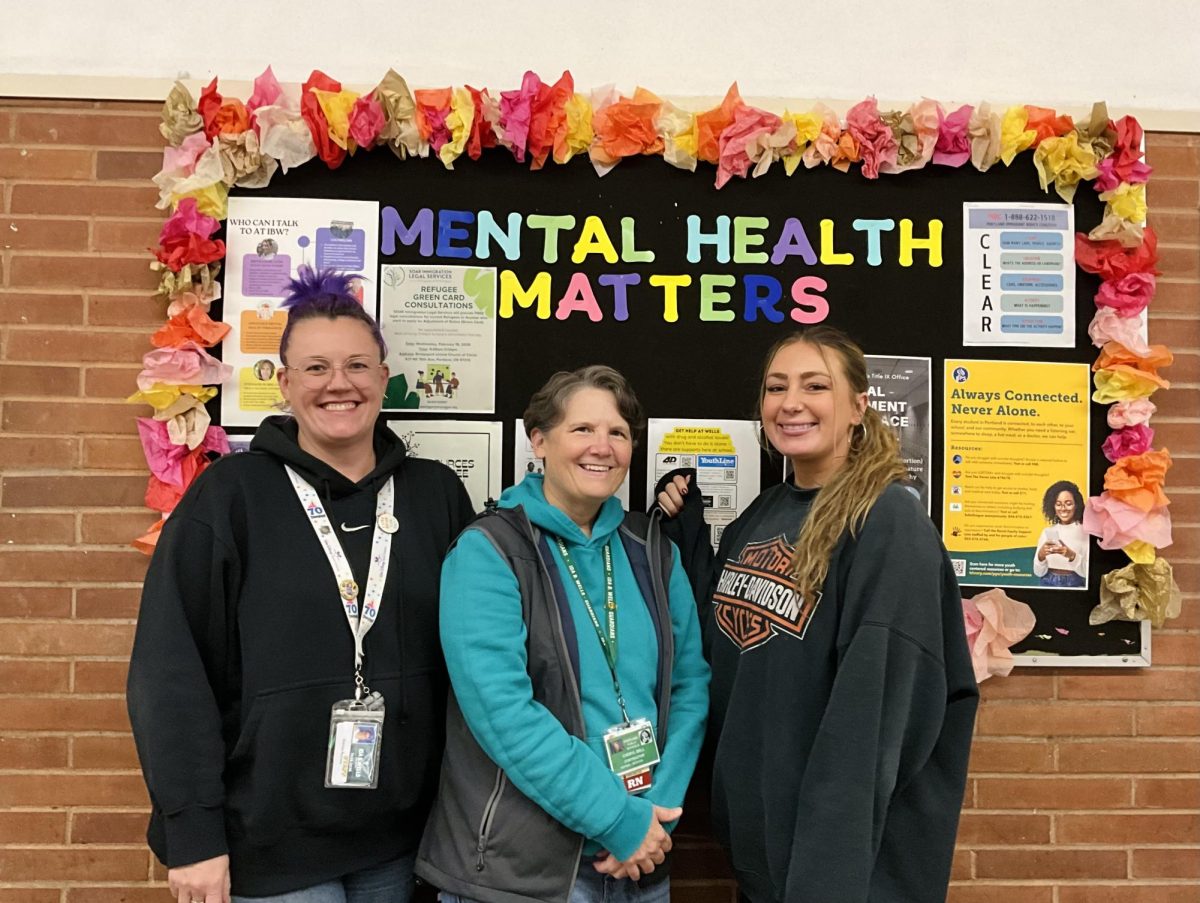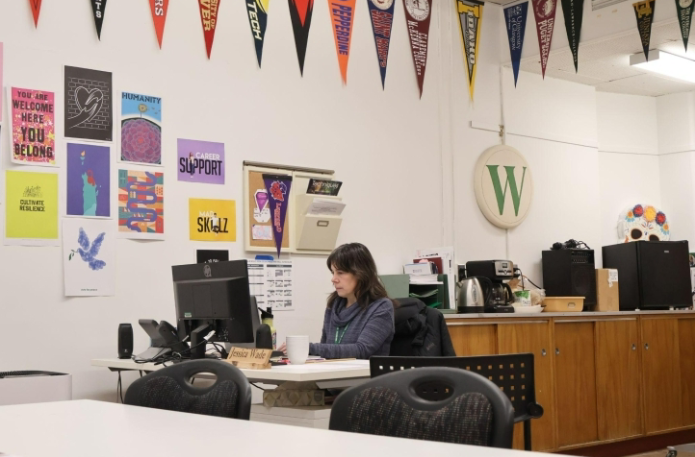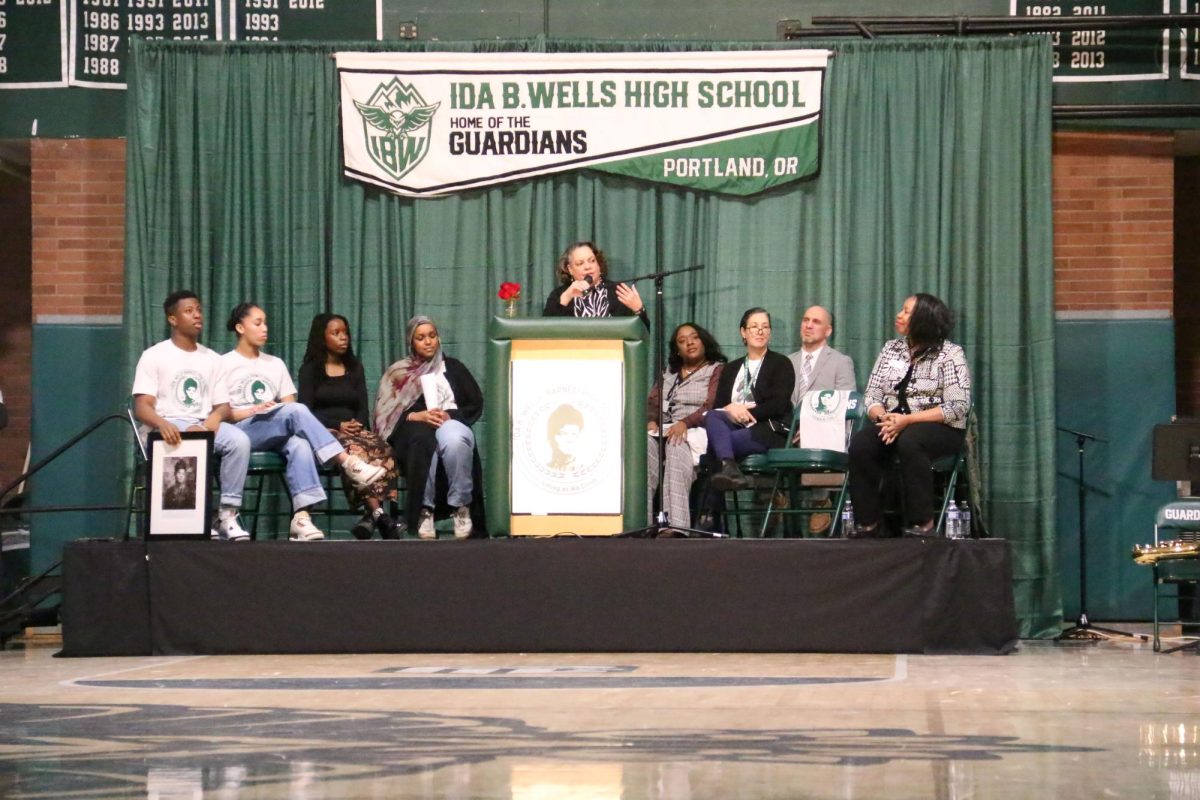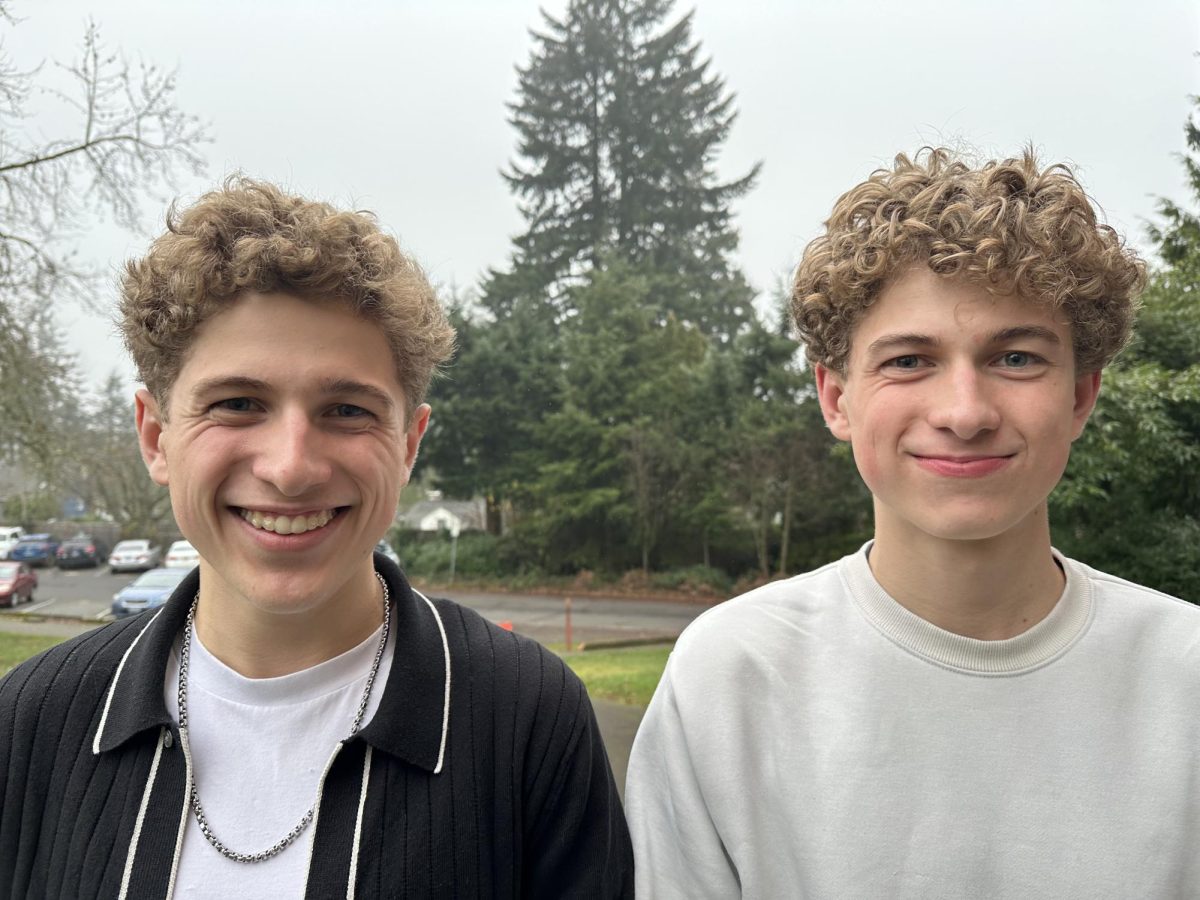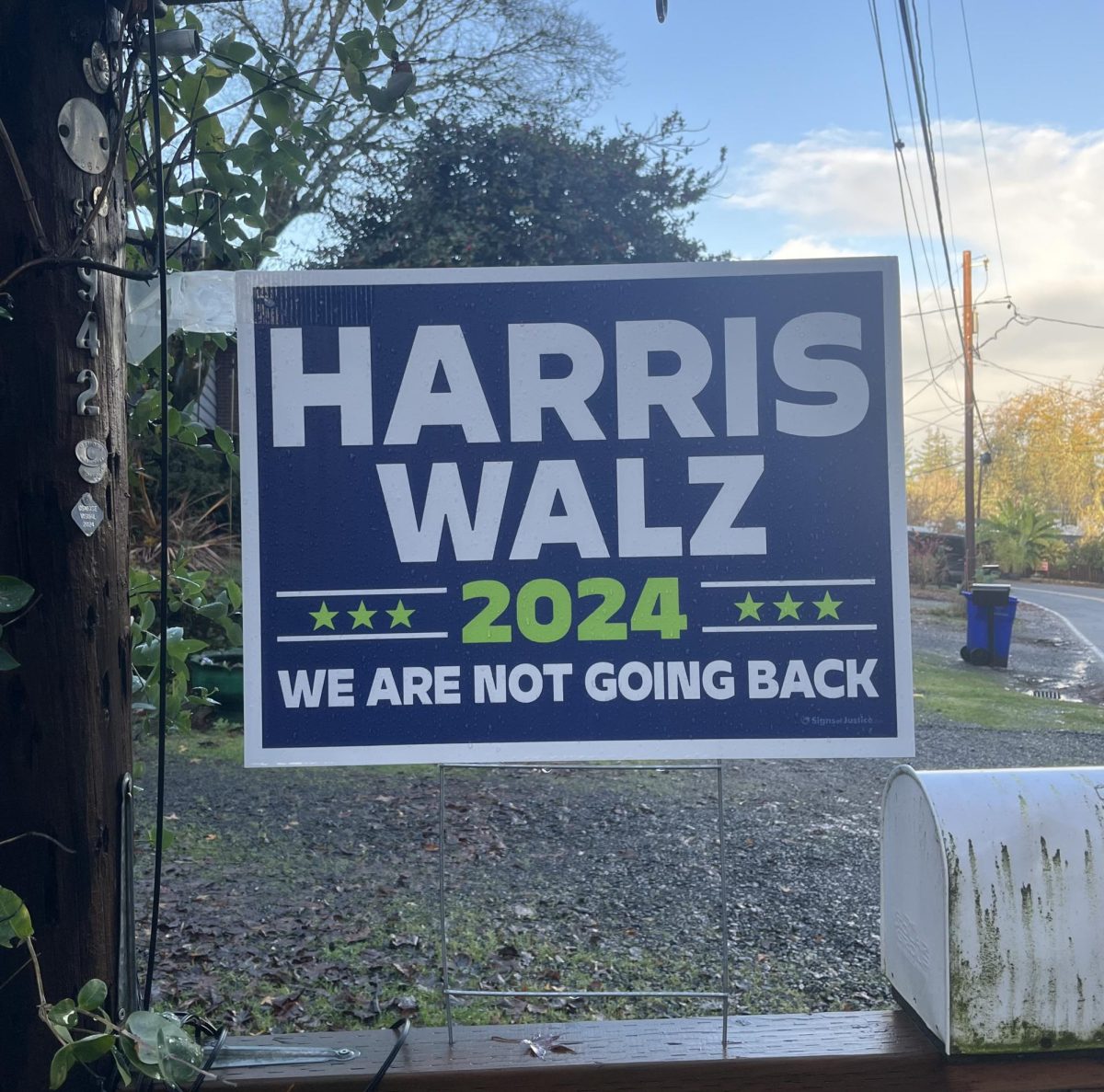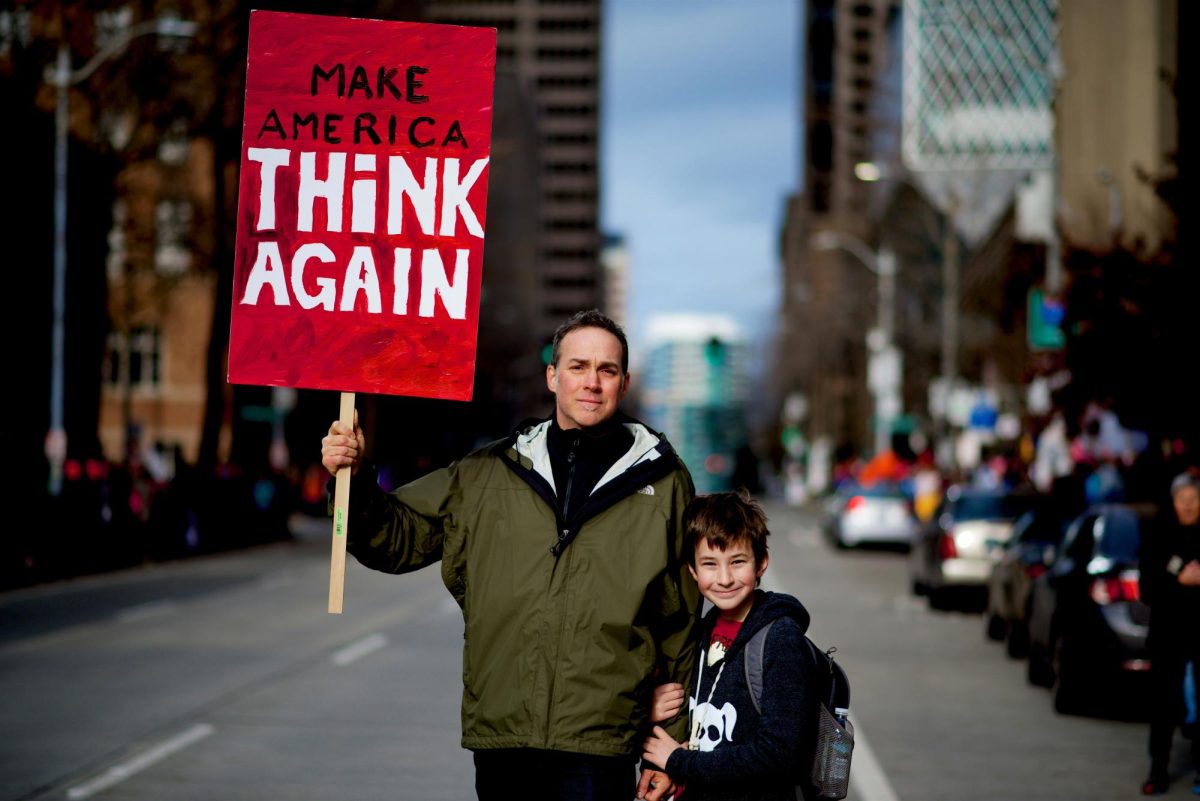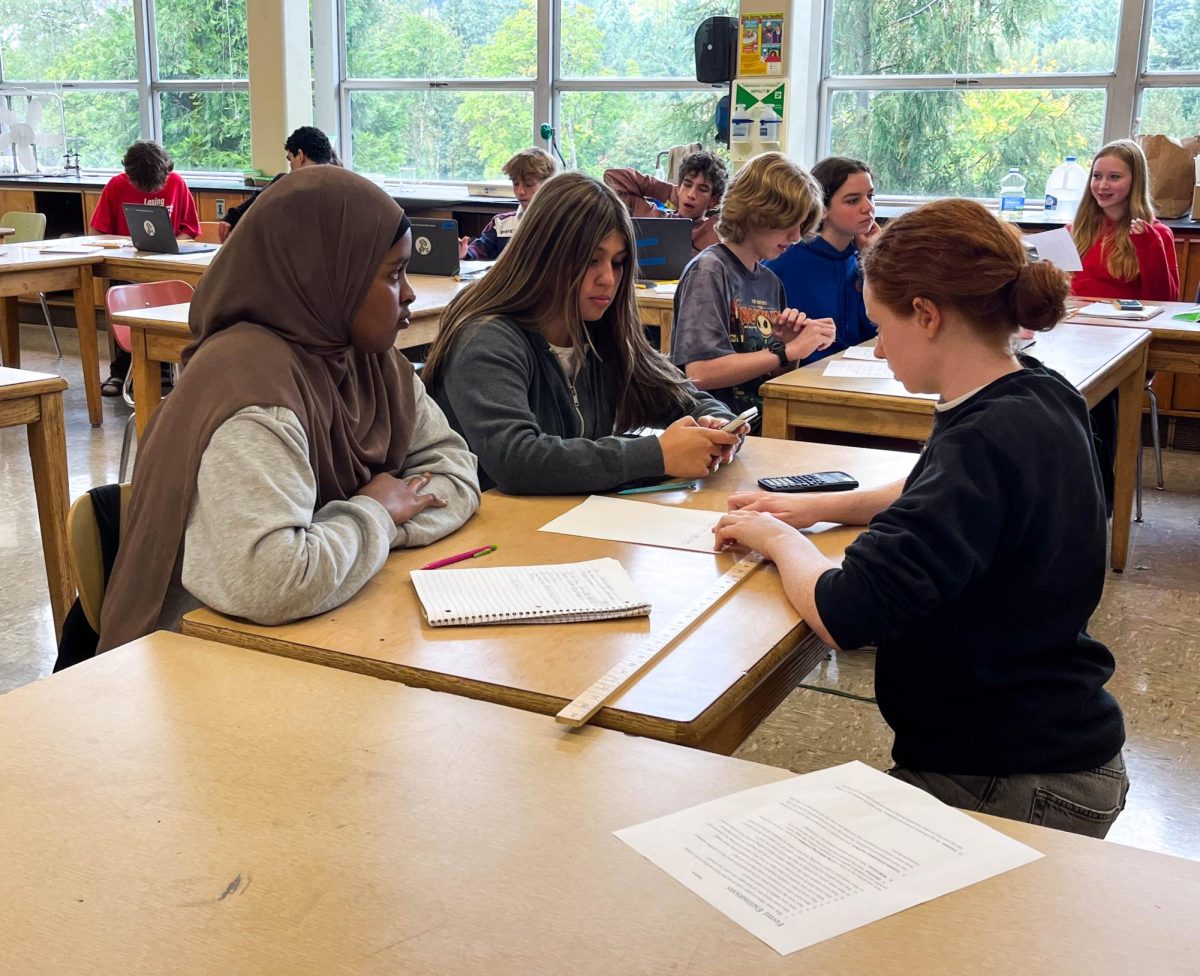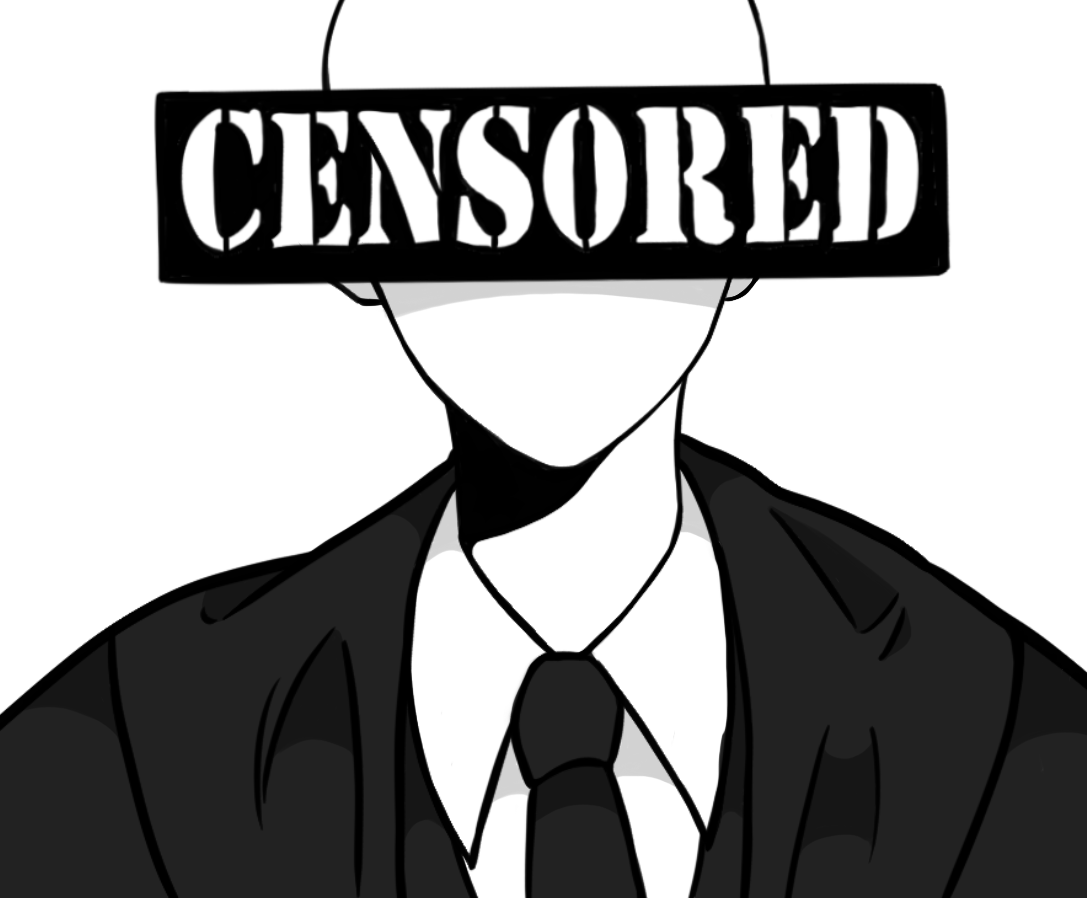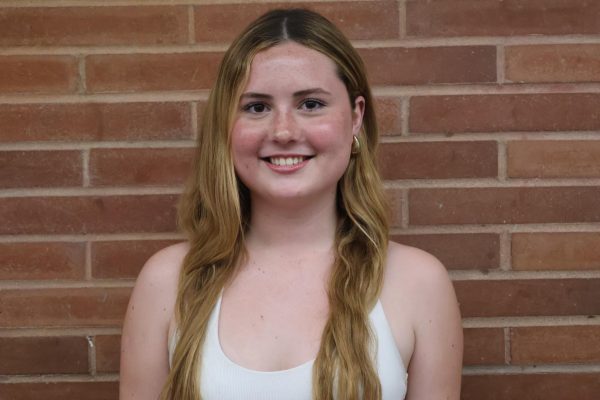October is mental health awareness month, a moment in which the world stops to recognize something that we can’t always see, but lives inside of all of us.
Mental health is like the weather inside of us: sometimes calm and clear, other times stormy and unpredictable. We are fast to treat fevers, flus and broken bones, but pain of the heart and mind often go unnoticed.
They can feel invisible, like carrying a heavy backpack full of bricks that nobody else sees. At Ida B. Wells-Barnett High School, the message is clear: you don’t have to carry it alone.
“There are not barriers,” Emilee Refvem, the psychologist at IBW said. “There are communities you can talk to. You are not on your own.”
Being a teenager in 2025 is like walking on a tightrope balancing expectations; grades, sports, friendships and the endless comparisons of social media.
Some days the tightrope feels stable. Other days, it moves so much all you want to do is sit down and make it stop. Stress doesn’t always announce itself loudly; instead, it creeps in quietly through headaches that won’t go away, stomachaches with no cause and exhaustion that lingers, even after adequate sleep.
The hardest battles are often the ones fought in silence: the voice in your head that says you’re not enough, the fear that no one will understand, the thought that you have to figure it all out alone.
But as Britni Locke, the social worker at IBW said, “Taking school seriously also means taking our mental health seriously.” We cannot be our best selves in the classroom, on the field, or even with our friends if we are struggling on the inside.
And maybe what most of us need is not a perfect answer, but a pair of ears willing to listen. To sit with us in the silence. To say without words: you matter, and your feelings matter too.
Locke reminded us that it starts with something simple–checking in with a friend, noticing when their smile doesn’t reach their eyes, asking, “How are you, really?”
Listening without judgment is an act of love, one that costs nothing but can mean everything.
Because the truth is, a smile can lie. A perfect picture online can hide a storm. “Looks happy does not mean not bad,” Refvem said, and those words echo a reminder we often forget.
Struggling is more common than we think. Many stay quiet because they believe their problems are too small, or they worry about being a nuisance.
But every story matters. “If one person doesn’t understand, somebody else will. Somebody will,” Refvem said, and those words should be written on our walls.
At IBW, there are adults who care, such as nurses, counselors, teachers, coaches and advisors. Sometimes, the first step toward improvement is as simple as saying something out loud, letting someone else carry the backpack with you for a while.
Mental health challenges are not signs of weakness. They are signs of being human. Just as we would never blame someone for catching a flu or breaking a bone, we should never shame ourselves for feeling sad, anxious or overwhelmed.
Silence makes pain heavier; speaking it aloud makes it lighter, which is one reason why Mental Health Awareness Month is so important. It does not just raise awareness–it reminds us that our voices have power. It reminds us that it is okay to say, “I’m not okay.”
If you are struggling, please remember this: you are not alone. Not here, not at IBW, not in this world.
Help is closer than it seems. Sometimes it only takes one conversation to remind you that your story is worth telling, one person to remind you that your heart matters, one step to remind you that improvement is possible.
“We don’t always know what is happening in other people’s hearts,” Cheryl Bell, the nurse at IBW said. “But we can always listen. We can always care.”
This October, and every month that follows, be there to support each other, break down the stigma and take mental health seriously.
Behind every smile, every hallway conversation and every classroom seat, there is a story we may not know. No one should have to carry their backpack of worries alone–and at IBW, no one has to.


